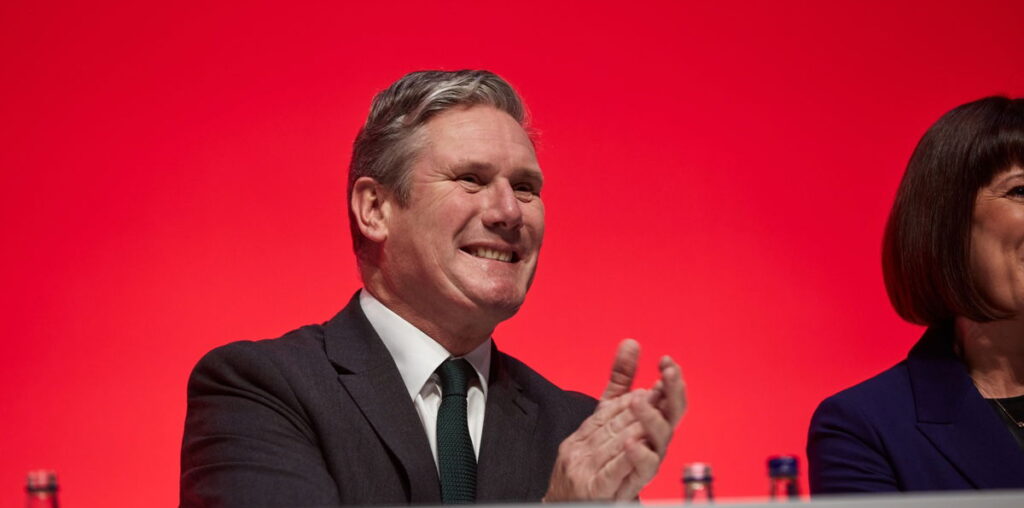
Keir Starmer and Rachel Reeves have announced budget reforms for NHS
Credit: Shutterstock: Martin Suker
A new budget will be approved to hopefully quash some of the negative renown attached to the NHS in what Labour ministers term as a system that might be “broken not beaten.”
Prime Minister, Keir Starmer says that the budget will be used to “fix foundations.” According to Labour ministers, billions of pounds of funding for the NHS will hopefully cut waiting lists and will be invested in surgical hubs and radiotherapy machines, to provide 40,000 more appointments per week. The funding is set to mark a 4% rise to NHS annual funding, which could possibly amount to £7bn for England’s health budget, in what UK Prime Minister Keir Starmer referred to as the biggest budget of the next five years, which could set the bar for future decisions within parliament. He said he wanted to “take the difficult decisions here and now upfront” to enable enhanced conditions within public services, investment and growth. Starmer added: “We are fixing the foundations in this budget … That’s the approach … you can expect to see pretty well all of that in this budget,” he said, though he added that he could not “ever completely rule out any further changes.”
The budget reform to the NHS will be a one-off
Keir Starmer and Chancellor of the Exchequer, Rachel Reeves have apparently stated that the budget reform would not be a sequential event and would be instead, “generational”: the budget reform will respond to a current crisis and will not likely change again in response to punctual periods of crisis. In other words, there will be no further unprecedented changes affecting taxes for quite some time. This comes in response to fears around national insurance tax contributions which will see a rise as a result of the increased investment. Tax increases are, for the moment, not likely to effect pension contributions. The Prime Minister outlined how these changes would be different to previous promises made by the labour government. He said: “The budget the chancellor will deliver on Wednesday will prevent devastating austerity in our public services and prevent a disastrous path for our public finances,” Starmer said. “That is the reality of what would happen if we’d stuck to Tory spending plans.”
Further changes made by the Chancellor include alterations to capital gains and inheritance tax, meaning more households will be obliged to pay higher rates with an expected rise in wages. This comes at a time when Reeves has unravelled a multi-million pound “Get Britain Working” scheme, which aims to provide greater support in getting people back into work. Despite the post-covid transport cap being lifted at the end of this year, raising the price from £2 to £3, other measures will improve conditions for those living in the UK such as a push to maintain the cap on fuel duty.
With regards to the main budget reform – targeting the NHS – time has been running out to make important changes and without an increased budget, this would have been impossible. In August, it was revealed that more than 7.6 million patients in England were on the waiting list for an appointment, scan or operation, with more than 280,000 on the waiting list for over a year. Matthew Taylor, Head of the NHS Confederation, said it was a “step in the right direction.”
NHS needs more funding, especially for cancer treatment
However, some argue that the funding is simply insufficient. Building maintenance issues, the inadequate condition of some equipment and out-of-date radiotherapy machines mean that a substantial increase the existing budget announced would be required. Professor Pat Price, the chair of Radiotherapy UK, said: “There’s a lot more that needs to be done.” It was added that new technology could free up 87,000 cancer appointments, especially if the government invested £850m – the funds needed to make headway with cancer treatment demands.
Mark Lawler, a professor of digital health at Queen’s University Belfast commented: “Incredibly, we have not achieved the 62-day target for referral to first treatment since 2015, a shocking indictment of a system that is failing our cancer patients.” He added: “Prompt treatment is crucial to the chances of survival. An investment of just £850m – a tiny fraction of the overall NHS budget – would make significant inroads into the cancer treatment waiting lists, saving thousands of lives.”

